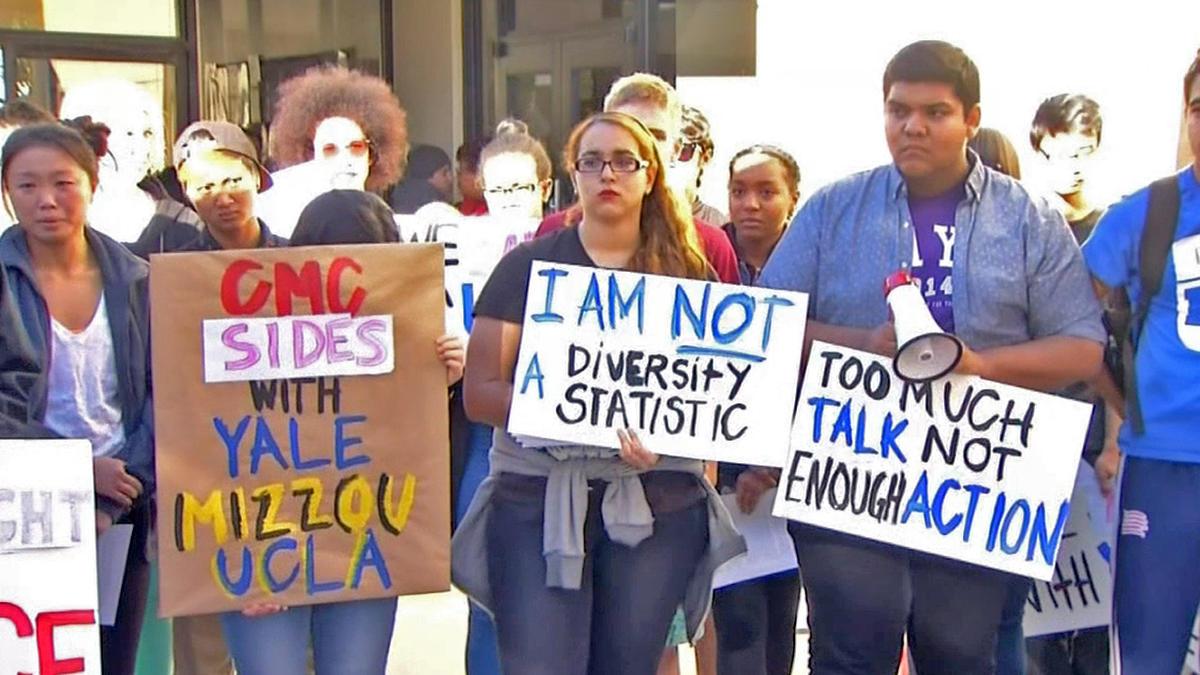Why do we, as Wellesley students, care about campaigns and protests on other campuses? Perhaps we see ourselves in the plights and feats of our peers. Or, our solidarity gives a community and meaning far greater than ourselves. In the past years, consequential campus campaigns have demanded the attention of the media and student bodies across the nation. Our involvement in campus affairs, as individuals or communities, is never without reason, but helps set precedents, prepares us for future activism, and strengthens community. We hope to address not only what compels us towards reporting on other campus affairs, but also activate a conversation on what it means when a community gives its opinions on another’s movements.
One recent example of intercollegiate involvement in protests and strikes emphasized the importance of setting precedent. Within the last two months, Harvard University Dining Services (HUDS) workers went on strike when their demands for an increased minimum salary and more affordable healthcare were denied by the institution. Though provided with high deductibles, many HUDS staff were unable to leverage them as their co-pays were too low for the deductible to be irrelevant. On Oct. 22, thousands of people, including students from peer colleges, joined HUDS staff and Harvard students in protesting against the purportedly absurd contract. Yet, the endeavor to protect the rights of the HUDS staff does not stop now that an agreement has been reached. Rather, it has raised the larger issue of financial budgets. As leaders from over fifty religious institutions concluded in an address to Congress in 2011, “Budgets are moral documents, and how we reduce future deficits are historic and defining moral choices.” Similarly, how universities choose to compensate their employees and fund projects sets precedent. Harvard is known for setting precedents for educational institutions, and often, college financial committees often look to what their peers have done in terms of raising tuition or allocating funds. The involvement of other college campuses in the happenings at the institution are not without justifiable selfishness. When we support campaigns, we speak to what we need on our campuses.
Likewise, in involving ourselves in the affairs of others, we can better prepare ourselves and bring awareness for similar circumstances that may arise or already be simmering in our communities. For example, in 2015, a series of protests at the University of Missouri brought light to issues around race, workplace benefits and leadership. This movement resulted in the resignations of both the president of the University of Missouri System and the chancellor of the flagship Columbia campus. Moreover, it ignited a national conversation and inspired similar initiatives at other campuses, all under the hashtag #ConcernedStudent1950. Participation both on campus and through social media resulted in introspection into our own issues at Wellesley, from a multicultural house to sincere diversity recruitment at all levels of the institution.
Regardless, what is true about the two previous examples is that our intentions in involving ourselves in the events and movements of other campuses results in a stronger community amongst students. By helping others, we hope in return that if we too were faced with similarly harsh circumstances, we would receive support. That is a definition of solidarity. However, solidarity is not an eye-for-an-eye concept. We do not expect every campus to face a climactic issue, nor do we wish it.
Nevertheless, it’s worth asking: had our AVI Fresh Employees gone on strike for nearly a month, would our fellow peers at Harvard, MIT, Babson, Olin, Smith, Wesleyan and so on, join us in our protests? Some may be skeptical, as it’s quite easy and comfortable for observers to conclude that the Wellesley situation is a special one given our position as a single-sex college. However, by involving ourselves in solidarity movements and campus development, we remove that skepticism and replace it with something more powerful than sisterhood: a sibling-hood beyond the Seven Sisters and a sibling-hood in our shared humanity. Perhaps one college’s movements is not solely its own, but that of the entire academic community. What happens in one place could have easily happened elsewhere.





